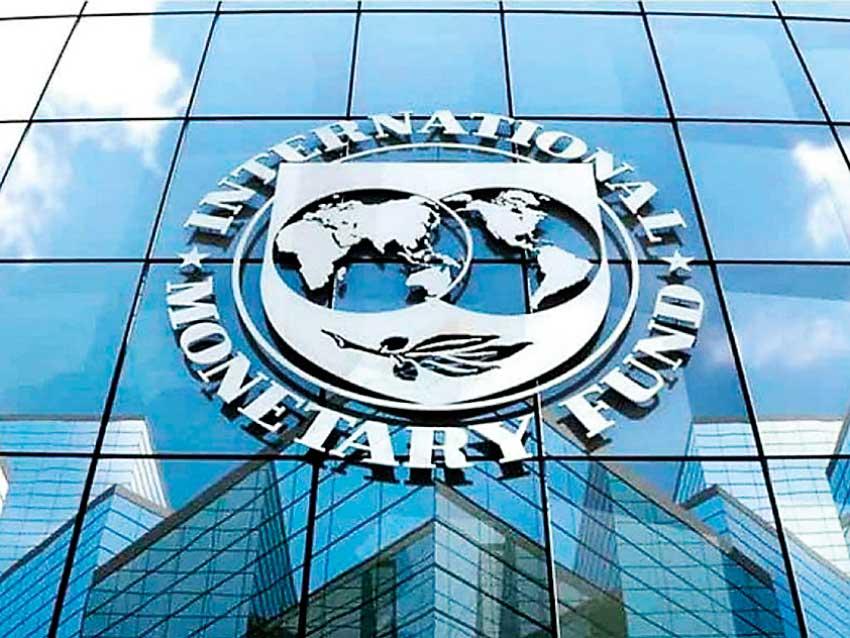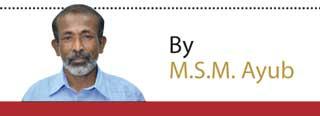Reply To:
Name - Reply Comment
Last Updated : 2024-05-18 20:50:00

Apart from the intricacies of the IMF bailout process, a huge trust deficit resulted in by the actions of the past and present governments also seem to be standing in Sri Lanka’s way in seeking assistance from foreign countries
Although specific cases of corruption and mismanagement have not been proved some of the Sri Lankan leaders have earned an unsavoury reputation internationally which in turn affects the country as a whole
 A way out of the current economic crisis is not within sight. The government has sought financial assistance and support for debt restructuring from the International Monetary Fund (IMF) but the progress of that programme also seems to be slower than expected. Prime Minister Ranil Wickremesinghe who seems to be steering the programme said in Parliament on June 22 that a staff-level agreement is expected to be finalised with the International Monetary Fund (IMF) delegation that was in the country by the end of June, but it was not realised.
A way out of the current economic crisis is not within sight. The government has sought financial assistance and support for debt restructuring from the International Monetary Fund (IMF) but the progress of that programme also seems to be slower than expected. Prime Minister Ranil Wickremesinghe who seems to be steering the programme said in Parliament on June 22 that a staff-level agreement is expected to be finalised with the International Monetary Fund (IMF) delegation that was in the country by the end of June, but it was not realised.
A statement issued by the delegation before leaving the country on June 30 said “the discussions will continue virtually with a view to reaching a staff-level agreement on the Extended Fund Facility (EFF) arrangement in the near term.” And the Prime Minister on Tuesday told Parliament that such an agreement is expected to be arrived at in August. The statement also said, “Because public debt is assessed as unsustainable, Executive Board approval would require adequate financing assurances from Sri Lanka’s creditors that debt sustainability will be restored.”
Apart from the intricacies of the IMF bailout process, a huge trust deficit resulted in by the actions of the past and present governments also seem to be standing in Sri Lanka’s way in seeking assistance from foreign countries. A poor foreign policy followed especially during the former Mahinda Rajapaksa government and the current Gotabaya Rajapaksa government and corruption eating into the state machinery have been blamed for this trust gap.
The government on April 12 announced a preemptive default of the country’s all foreign debt as a last resort in its struggle to cope with the grave economic crisis. Then Hamilton Reserve Bank, a St Kitts and Nevis-based bank filed a suit in the Federal Court of New York Southern District last month against Sri Lanka over the country’s default on a $1 billion sovereign bond maturing this month. According to a part of the case documents published in Sri Lankan media, the Bank has accused the Rajapaksa family of “lining their own pockets through years of corruption.” Quoting former U.S. government officials and unnamed investigative journalists it said that the Rajapaksa family has amassed a multibillion-dollar fortune and hidden part of it in bank accounts in offshore jurisdictions such as Dubai, Seychelles and St. Martin.
Despite the fact that the bank has not substantiated these allegations, this indicates that the allegations of corruption at the highest level in Sri Lanka has been internationalised. Although specific cases of corruption and mismanagement have not been proved some of the Sri Lankan leaders have earned an unsavoury reputation internationally which in turn affects the country as a whole. This along with poor foreign policy which was highlighted by the bungling of some specific incidents seems to have distanced many countries from coming forward to rescue Sri Lanka from the current mess. The leaders of the country were running all over but no country, except for India has offered any considerable assistance. Others in fact are throwing crumbs – rice for a meal or a day or a few million dollars which is not sufficient to import a fuel shipment.
In an interview with India’s NDTV on the sidelines of the annual meeting of the World Economic Forum in Davos, Switzerland on May 26, International Monetary Fund Managing Director Kristalina Georgieva has bluntly said that Sri Lanka’s crisis is due to mismanagement. She had expressed this view while her organisation was dealing with Sri Lankan authorities in order to offer the country a bailout package. Corruption has been an item that is on the agenda of the IMF staff-level meeting with Sri Lankan authorities as well. The above statement issued by the IMF team on June 30 had mentioned corruption as one of the challenges that need addressing.
On June 20, while calling on the IMF to ensure that human rights are “central to any future economic reform programme” negotiated between the organisation and the Sri Lankan government, Amnesty International had also taken up the issues of corruption and mismanagement. In a letter to the IMF’s representative in Colombo, the rights organisation had pointed out economic mismanagement as one of the factors that had plunged Sri Lanka›s economy into crisis and called on the IMF to “build measures to guarantee accountability and public scrutiny to avoid corruption.”
The president of the Open Society Foundations Mark Malloch-Brown, a British diplomat who served as the deputy to the former United Nations Secretary-General Kofi Annan had said on June 24 that Sri Lanka had a history of diverting aid. He further said that the IMF must acknowledge the reason the country is in this mess by putting this issue on the agenda during their visit. He was referring to the last month’s IMF representatives’ visit to Sri Lanka. “Otherwise, they risk bailing out corrupt politicians instead of people in need,” Malloch-Brown warned. He was responding to a comment by economist Nishan de Mel who had claimed that systemic corruption in Sri Lanka has contributed greatly to the debt/economic crisis.
In addition to these warnings by various quarters on the bailing out of Sri Lanka without taking up the issues of human rights, corruption and mismanagement the United States Senate Foreign Relations Committee too had said on July 1 that any IMF agreement with Sri Lanka must be contingent on the independence of the Central Bank, strong anti-corruption measures, and promotion of the rule of law. “Without these critical reforms, Sri Lanka could suffer further economic mismanagement and uncontrollable debt,” it had said on its official Twitter account.
According to Daily Mirror of July 1 Japanese Ambassador in Colombo Mizukoshi Hideaki who met the Tamil National Alliance (TNA) had reportedly said that there is a risk of financial assistance to Sri Lanka being mismanaged and hence Japan will not support the country at this point. Later the Japanese Embassy had stated that there have been incorrect media reports on the Japanese assistance to Sri Lanka but had not specifically mentioned the Daily Mirror story or its contents.
It must be recalled that the European Parliament too had threatened through a resolution in June last year to do away with the GSP Plus concessions awarded to Sri Lanka unless the country takes some positive steps towards human rights and reconciliation.
One has to expect these statements and actions by various international institutions and prominent individuals to have a heavy influence on Sri Lanka’s IMF programme. Hence, it would be an immense challenge for the Sri Lankan leaders to address the issues of corruption and mismanagement within the IMF bailout process, on the one hand, they are systemic issues and many powerful people in politics and the officialdom have been accused of them while the country is facing a dire situation on the other.

Add comment
Comments will be edited (grammar, spelling and slang) and authorized at the discretion of Daily Mirror online. The website also has the right not to publish selected comments.
Reply To:
Name - Reply Comment
The state-run loss-making State Mortgage & Investment Bank (SMIB) has reveale
US authorities are currently reviewing the manifest of every cargo aboard MV
On March 26, a couple arriving from Thailand was arrested with 88 live animal
According to villagers from Naula-Moragolla out of 105 families 80 can afford
17 May 2024 - 0 - 115